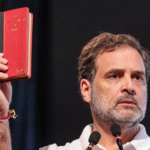Genocide anniversary of a significant war that has long shaped the geopolitical landscape of the Middle East, Turkish President Recep Tayyip Erdogan issued a stern warning to Israel, claiming that the country will “pay the price” for what he described as “genocide.” The statement has sent ripples across the region, amplifying the already complex relationship between Turkey and Israel, and drawing the world’s attention to the simmering tensions in the Israeli-Palestinian conflict. Erdogan’s remarks come at a time when the global focus on the plight of Palestinians has intensified, and his strong words have sparked debates about the broader ramifications of this controversial rhetoric.
Historical Context: Turkey-Israel Relations and Erdogan’s Stance
To fully comprehend Erdogan’s statement, it is essential to understand the historical and political backdrop of Turkey-Israel relations. Turkey was the first Muslim-majority country to officially recognize the State of Israel in 1949, and for decades, the two countries enjoyed relatively close ties. This relationship was built upon mutual security interests and economic cooperation, including defense agreements and trade partnerships. However, relations began to fray in the early 2000s, particularly after Erdogan’s rise to power.
Erdogan, known for his populist and nationalist rhetoric, has consistently positioned himself as a defender of the Palestinian cause, often criticizing Israel’s treatment of Palestinians in harsh terms. His strong opposition to Israeli actions, especially those related to military operations in Gaza and the West Bank, has strained diplomatic relations between the two nations. The 2010 Gaza flotilla incident, in which Israeli forces killed Turkish activists aboard a ship attempting to break the Gaza blockade, marked a turning point. Tensions escalated, leading to a temporary suspension of diplomatic ties, and although relations were later restored, the underlying issues remained unresolved.
Erdogan’s remarks about Israel paying the price for “genocide” reflect his long-standing support for the Palestinian people and his broader geopolitical aspirations to position Turkey as a leading voice in the Muslim world. His rhetoric also aligns with his broader domestic political strategy, where championing the Palestinian cause resonates deeply with his conservative base.
The Accusation of “Genocide”: Erdogan’s Claims and Israel’s Response
In his speech, Erdogan labeled Israel’s actions toward Palestinians, particularly in Gaza, as “genocide,” accusing the Israeli government of systematically targeting and killing Palestinian civilians. This accusation is not new; Erdogan has frequently used the term to describe Israel’s military operations in Gaza, especially during conflicts such as the 2008-2009 Gaza War and the 2014 Israel-Gaza conflict, where civilian casualties were high.
The use of the word “genocide” is powerful and provocative, especially in the context of international law. Genocide refers to the deliberate attempt to destroy, in whole or in part, a national, ethnic, racial, or religious group. Erdogan’s labeling of Israel’s actions as such implies that he views the Israeli government’s military operations as an intentional effort to wipe out the Palestinian people. However, this accusation is highly controversial and has been rejected by Israel and many of its allies.
In response to Erdogan’s comments, Israeli officials dismissed his remarks as inflammatory and baseless. Israel has consistently maintained that its military actions in Gaza and the West Bank are defensive measures aimed at neutralizing threats posed by militant groups like Hamas, which have launched thousands of rockets into Israeli territory. The Israeli government argues that its military campaigns are conducted in accordance with international law and are necessary to protect its citizens from terrorism.
Israeli officials have also pointed out that Hamas, the militant group that governs Gaza, uses civilian areas as launch sites for attacks, effectively turning residential neighborhoods into military targets. According to the Israeli narrative, the tragic civilian casualties that occur during conflicts are a consequence of Hamas’ tactics, rather than a deliberate strategy to target civilians.
The Israeli-Palestinian Conflict: A Recurring Tragedy
Erdogan’s comments come against the backdrop of one of the world’s longest-running and most intractable conflicts. The Israeli-Palestinian conflict has its roots in the early 20th century, when the rise of both Jewish and Arab nationalism set the stage for a territorial and ideological struggle over the land of historic Palestine. The creation of the State of Israel in 1948, followed by the 1948 Arab-Israeli War, resulted in the displacement of hundreds of thousands of Palestinians, an event known to Palestinians as the Nakba, or “catastrophe.” This mass displacement has been a core issue in the conflict ever since.
Over the decades, multiple wars, uprisings (Intifadas), and peace efforts have punctuated the conflict, but a lasting resolution has remained elusive. The Israeli occupation of the West Bank, the status of Jerusalem, the construction of Israeli settlements in occupied territories, and the blockade of Gaza are all issues that continue to fuel tensions between Israel and the Palestinians.
Gaza, in particular, has been a flashpoint for violence. Governed by Hamas since 2007, the densely populated territory has been subjected to numerous Israeli military operations, ostensibly aimed at degrading Hamas’ military capabilities and stopping rocket fire into Israel. However, these operations have resulted in significant civilian casualties and widespread destruction, leading to international condemnation and calls for humanitarian intervention. 
Erdogan’s Role in the Muslim World
Erdogan’s harsh rhetoric against Israel is not just a reflection of Turkish-Israeli bilateral tensions; it is also part of his broader strategy to assert Turkey’s leadership in the Muslim world. Over the years, Erdogan has sought to position himself as a champion of Muslim causes, particularly in relation to Palestine. He has frequently used his platform to criticize not only Israel but also other Muslim-majority nations that have normalized relations with Israel.
Erdogan’s ambitions for regional leadership can be seen in his vocal opposition to the Abraham Accords, the series of agreements brokered by the United States that saw several Arab states, including the United Arab Emirates and Bahrain, normalize relations with Israel. Erdogan has criticized these nations for what he sees as a betrayal of the Palestinian cause, arguing that normalization without addressing the core issues of the conflict, such as the status of Jerusalem and the right of return for Palestinian refugees, is unacceptable.
At home, Erdogan’s stance on Israel plays well with his conservative and nationalist base. The Palestinian issue resonates deeply with many Turks, and Erdogan has skillfully used it to bolster his domestic popularity. His government often frames Turkey as a protector of the oppressed, positioning itself as a counterbalance to Western influence in the region.
International Reactions and Implications
Erdogan’s remarks have not gone unnoticed on the international stage. Western governments, particularly the United States, have traditionally been strong supporters of Israel and have criticized Erdogan’s rhetoric as unhelpful to the cause of peace. The U.S. government, in particular, has sought to mediate between Israel and its Arab neighbors, and Erdogan’s inflammatory comments complicate these efforts.
However, Erdogan’s Genocide statements may find support among some segments of the international community, particularly in countries that have been critical of Israeli policies in the occupied territories. Many nations, Genocideespecially in the Global South, view the Israeli-Palestinian conflict through the lens of anti-colonialism and human rights, and Erdogan’s framing of Israel’s actions as “genocide” could resonate with those who see the Palestinians as victims of occupation and oppression.
Erdogan’s Genocide comments could also have broader geopolitical implications. Turkey’s relationship with Israel has been marked by cycles of rapprochement and tension, and his latest remarks suggest that any recent attempts to improve ties may be short-lived. The two nations have cooperated on energy projects and trade in recent years, but Erdogan’s consistent criticism of Israeli policies remains a major obstacle to a full restoration of ties.
Moreover, Erdogan’s rhetoric could exacerbate tensions between Turkey and other regional actors. While some Muslim-majority countries share Erdogan’s criticism of Israel, others, particularly those that have normalized relations with Israel, may view his comments as unhelpful and divisive. The Genocide emerging alignment between Israel and Sunni Arab states, driven largely by shared concerns over Iran, represents a significant shift in the region’s geopolitical landscape, and Erdogan’s stance could further isolate Turkey from these new alliances.
The Way Forward: Peace or Further Escalation?
Erdogan’s statement that Israel will “pay the price” for what he described as “genocide” raises questions about the future trajectory of the Israeli-Palestinian conflict. While his rhetoric may serve to galvanize his domestic base and reinforce his position as a defender of Palestinian rights, it is unlikely to lead to any immediate change in the dynamics of the conflict.
The reality on the ground remains bleak. The Israeli government, Genocide led by a right-wing coalition under Prime Minister Benjamin Netanyahu, continues to pursue policies that many in the international community view as obstacles to peace, including the expansion of settlements in the West Bank and the ongoing blockade of Gaza. On the Palestinian side, internal divisions between Hamas and the Palestinian Authority, as well as a lack of international consensus on how to move forward, have made the prospects for peace increasingly remote.
Erdogan’s Genocide remarks may serve as a reminder of the deep-seated grievances and unresolved issues at the heart of the conflict. However, without meaningful diplomatic efforts and a willingness from both sides to make difficult compromises, the cycle of violence and recrimination is likely to continue.
Conclusion
Erdogan’s Genocide statement that Israel will “pay the price” for “genocide” on the anniversary of a significant war highlights the enduring and unresolved nature of the Israeli-Palestinian conflict. While his rhetoric is a reflection of his long-standing support for the Palestinian cause and his broader geopolitical ambitions, it also underscores the challenges of achieving a peaceful resolution to the conflict. As tensions continue to simmer in the region, the international community must redouble its efforts to promote dialogue and prevent further escalation, lest the region be plunged into yet another cycle of violence. ALSO READ:- Hezbollah Rockets Strike Israel’s Haifa and Tiberias: 10 Injured Amid Growing Regional Tensions





